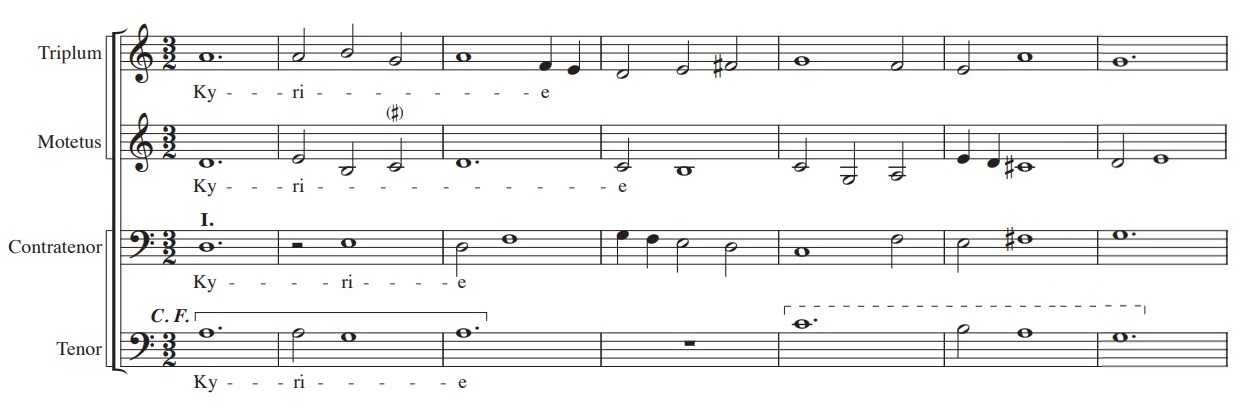Guillaume de Machaut
The Medieval Period
Public domain, via Wikimedia Commons
He’s a poor man who can come
To a total, and his riches sum.
Born in France at the turn of the fourteenth century, Guillaume de Machaut was educated as a cleric, studying Latin classics including Ovid and Livy. In his twenties, he took minor orders. After this, he traveled around Europe as a chaplain and scribe, eventually securing a position working as a secretary and composer for John I, King of Bohemia, one of the most powerful states in the Holy Roman Empire. Through his influence, he also became an absentee canon at Rheims Cathedral in France in 1337, giving him additional prestige and a second income.
After his patron’s death during the Hundred Years' War at the Battle of Crécy in 1346, Guillaume traveled around Europe again, working for Jean III of France and Charles II of Navarre, one of the Christian kingdoms in northern Spain.
Around this time, however, the Black Plague swept through Europe, killing millions. Machaut survived through a bold strategy, which he recounts in his poem Le Jugement dou Roy: “I closed myself up inside the house and determined resolutely in my mind I’d not leave.”
Machaut helped to pioneer a new musical style called Ars Nova ("new art.") This style pushed beyond the boundaries of Notre Dame School organum, creating an intricate polyphonic texture where independently moving melodies interact to form incidental harmonies. His most famous work in this style is "Messe de Notre Dame" (Mass of Our Lady.) A mass was the primary form of Christian worship (and remains so in Catholic, Orthodox, and Anglican traditions) and consists of five musical movements (called the "ordinary"): the Kyrie ("Lord, have mercy"), Gloria ("Glory to God in the highest"), Credo ("I believe"), Sanctus ("Holy, holy, holy"), and Angus Dei ("Lamb of God.")

In the penultimate measure of this excerpt, note how the C♯ leads into the D by a semitone, and likewise the F♯ is raised to lead into the G by a semitone. This is known as a double leading tone cadence, distinctive of the Ars Nova style.
Due to his powerful patrons and his own efforts at preserving his works, Machaut's new style of music spread quickly across Europe and his manuscripts have been well preserved.
While he was 51, he composed "Le livre dou voir dit" (The Book of the True Poem), an autobiographical ballad which describes a love affair he had with a 19-year-old noble woman. Unlike the poetry of Guillaume IX d'Aquitaine, however, this poem, expresses the idea of courtly love, with their “affair“ taking place from afar and consisting primarily of sending each other letters and poems.
He died in 1377.
